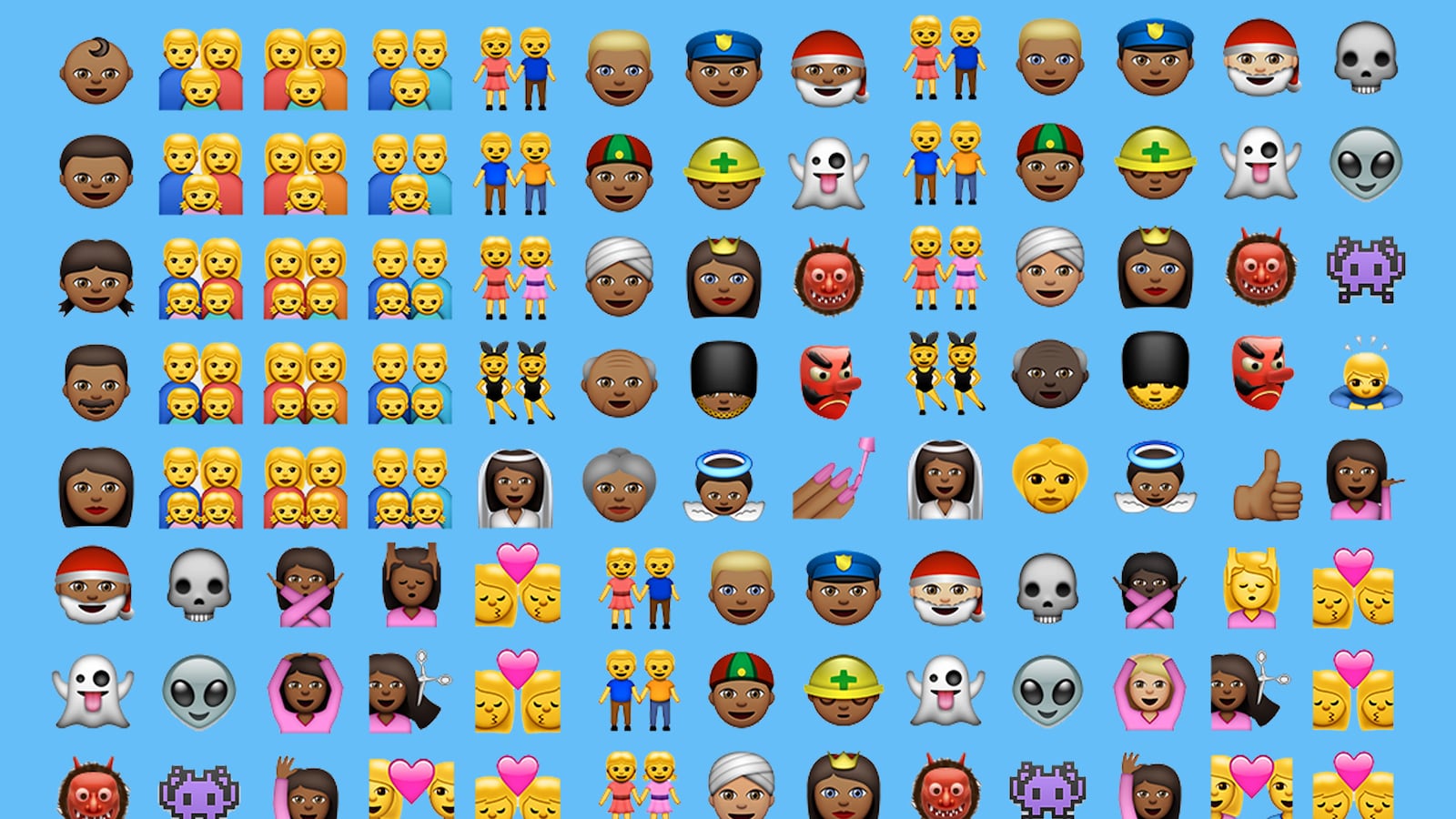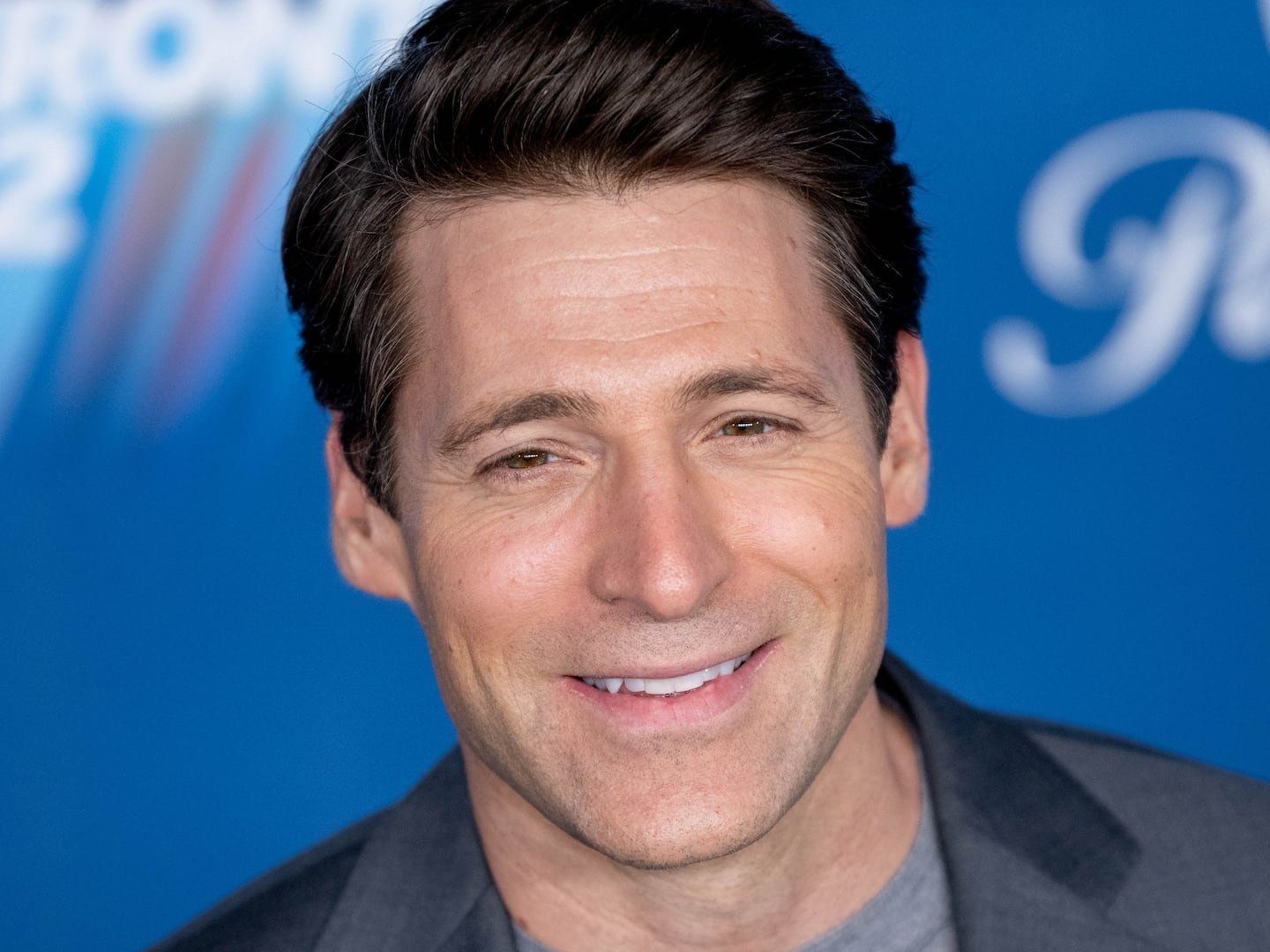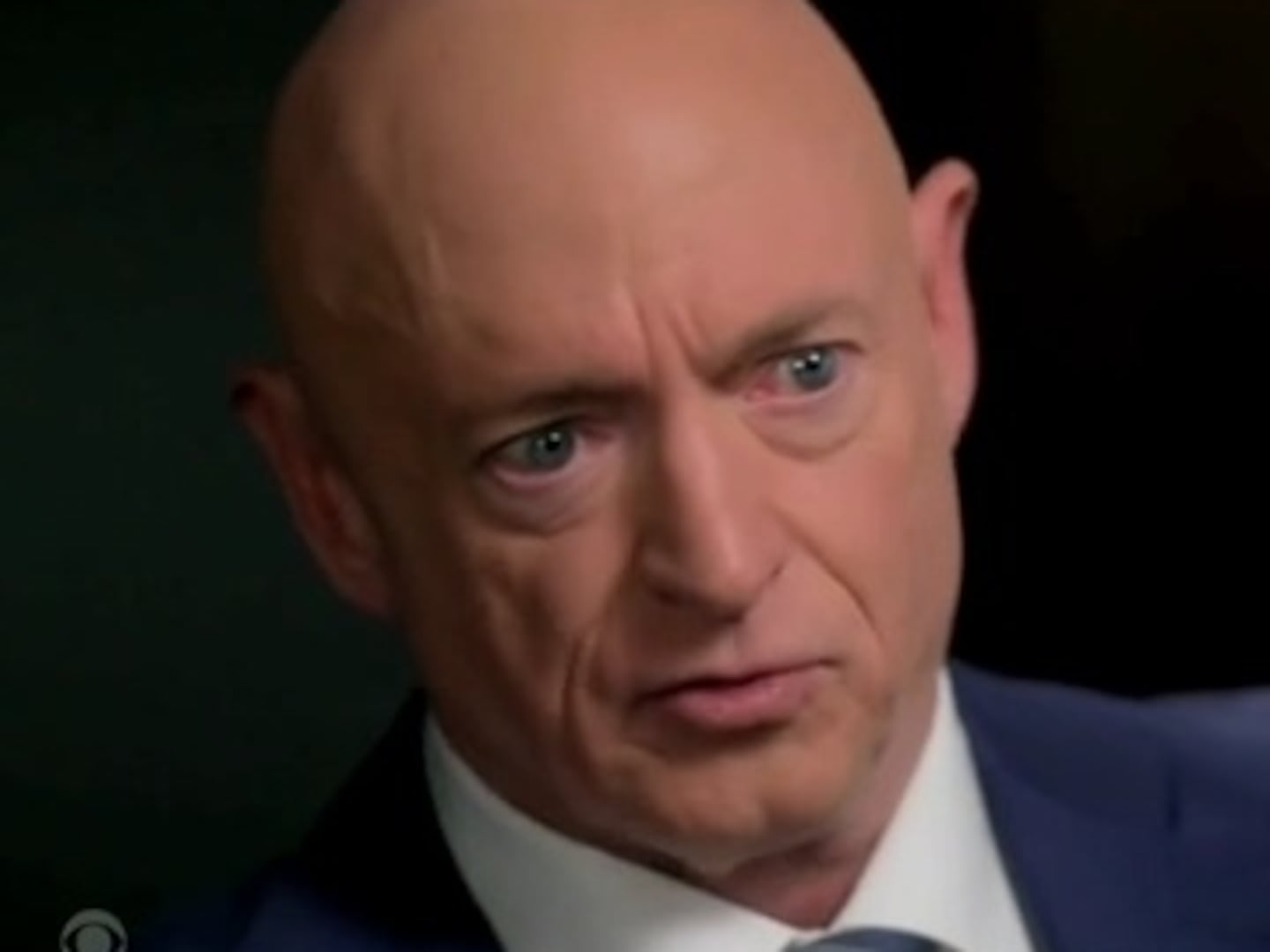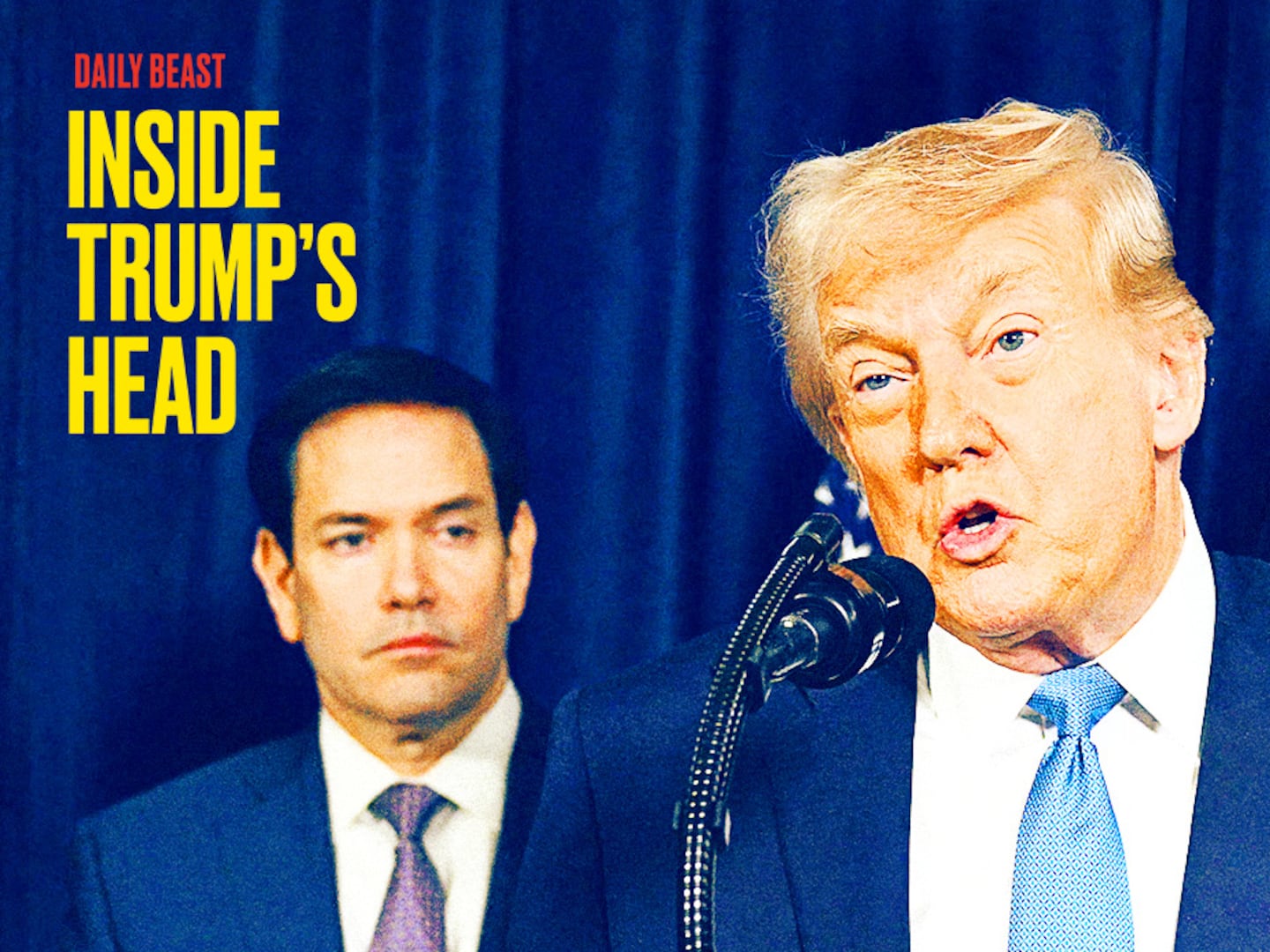So yes, at the age of 31 I am a grown man—at least chronologically and physically speaking—and while I have never used the emoji keyboard on my phone, I’m nonetheless going to talk about emoji.
Specifically, the vast technological undertaking to provide emoji with diverse skin tones roughly matching the spectrum of the human race has finally borne fruit. I can hold down my finger on a smiling face or thumbs up and watch the skin tones cycle through until they hit something roughly approximating my own shade (depending on how long I’ve been in the sun lately).
I no longer have to entertain the fact that the only thing that looks like me on an emoji keyboard is a stereotypical Asian guy in traditional headgear that apparently exists for when you need to type the word “Chinaman” in a text but just don’t have the time.
And while I’m personally not crying “tears of joy,” I think it’s a pretty big deal. I don’t have statistics from Apple, but judging from the social-media response, people are leaping to download iOS 8.3 on their phones much faster than they did the last couple of updates.
And yes, I can hear the criticisms flying into the comments sections now, the same ones I had in my mind when I started writing this—isn’t this kind of silly? Aren’t emoji in and of themselves trivial? Does anyone think different-colored smiley faces will save the world?
I sighed heavily, for instance, at the back-and-forth over the “yellow emoji” tempest-in-a-teapot among Asian texters. Yes, if you take a good look at what Apple is doing it’s pretty clear the “default” yellow color of the human emoji is a reference to the “inhuman” yellow of The Simpsons and the classic “Have a Nice Day” smiley faces.
On the other hand, maybe the reason Asians were ready to believe some well-intentioned developer wanted to “differentiate” us from other groups by giving us literal lemon-yellow skin is that it’s happened before.
And no, it’s not the end of the world when someone decides to make you bright yellow or put you in “ethnic” clothing because they don’t know anything about you and think of you as a weird, anomalous afterthought while making sure their “core audience” of white Americans is comfortable with how they’re portrayed.
It’s that it’s never just the one time.
This is why we’ve coined the word “microaggression”—it’s never just one thing. It’s never just one cigarette that gives you cancer, and it’s never just one bullying text message that makes a teen commit suicide. Human beings are shaped by the cumulative effect of millions of little daily interactions—and race, most of all, is not created by one Sorting Hat-like instance where you’re told “You’re Not White and Don’t Belong Here!” but by all the little daily reminders.
In her tongue-in-cheek piece advising we remove pale skin from emoji altogether, Jess Zimmerman brings up the Proteus effect and how the avatars we inhabit in imaginary worlds change our real-life behavior.
She doesn’t go into specifically how being forced to wear an avatar that doesn’t match your real self, over and over again, messes with your head, but that’s one of the major issues of existing online as anything other than the default white male. Having to exist in a body at odds with who you feel you are is the root of dysphoria. Real full-blown dysphoria is what some transgender people have to live with every minute of every day—but there’s also the subtler, intermittent form of dysphoria imposed by culture, what W.E.B. DuBois called “double consciousness.” The one where the ideal self having adventures in your head never quite matches who you really are, because the people selling you your culture didn’t make it with you in mind.
The question of whether you want to be a virtual sexpot or just carefully pretend at all times to be a dude is one that confronts every woman who makes an avatar for an MMORPG. Not that sexy avatars are a bad thing in and of themselves, but I had an EverQuest-playing female friend once mention that it was like having only one outfit in your closet—“in real life I get to pick whether I want to show cleavage or not.”
For a brown person, playing video games is an exercise in seeing how fun you find it being a generic white guy gunning down dozens of people who look like you. It’s making the choice between being a “faceless” protagonist who’s white or, occasionally, being an “ethnic” character who’s a hilarious stereotype.
Things like that. Some of the microaggressions are subtle, some incredibly blatant, e.g. games like Temple Run straight up making you pay extra money for the privilege of being a woman at all.
It all adds up. None of these things by itself is the cause of All Sexism or All Racism. None of these are done by people consciously thinking “I hate women” or “I hate people of color,” nor do these things transmit such conscious attitudes.
That’s not the point. The problem is not and never has been consciously thinking “I hate women” or “I hate people of color” (and by never I mean never: If you asked most slave owners in the antebellum South if they “hated” black people, they’d be offended at the question).
The problem has always been the feeling, either conscious or unconscious, that women or people of color are different and don’t belong, and the effects that come from that.
Flooding our media with male default avatars and giving the impression that male is “normal” and female is something different and weird you have to pay extra for? That’s probably what leads to weird phenomena like people watching crowd scenes in films with 20 percent women and thinking the crowd is evenly mixed. That leads to things like teachers in the classroom unconsciously calling on more boys who raise their hands than girls. And things like women being treated as more presumptuous and disruptive than men are when they challenge authority or negotiate for better terms.
Does that have something to do with the gender pay gap? Probably.
Just like the knee-jerk unconscious belief that white people “belong” and black people “don’t,” the heightened sense of anxiety that white students exhibit when simply asked to interact with black people in a study, the Implicit Association Test showing that all of us mentally link the concept of “whiteness” to the familiar and comfortable and “blackness” to the frightening and alien—well, that leads to scarier stuff. Stuff like people in a simulator pulling a trigger significantly more often on unarmed black men than white men. Stuff like people having less of a negative reaction to witnessing black people in pain than white people. Stuff like people automatically judging black children as older and less “innocent” than white children of the same age.
Did having an Internet filled with light-skinned emoji where being Caucasian was “normal” cause a police officer to think it was OK to gun down a 12-year-old boy in cold blood?
Of course not. These things never have just one cause; they build up over years. As Rodgers and Hammerstein said, you’ve got to be carefully taught.
But the more I think about it, the more I get why the emoji matter. Like my wife telling me about the messed-up self-loathing of growing up trying to be Not Like Other Girls; like the Black Is Beautiful movement fighting for all the black kids who grew up liking the white doll better; like my college friend who told me what a strange relief it was to see a school that didn’t put “Father” and “Mother” on his college application forms, but only “Parent 1” and “Parent 2”.
“It makes a difference when everyone’s telling you there’s something wrong with you and your two moms your whole life, and finally someone doesn’t,” he told me. Just like it makes a difference to be able to text your friends about your parents and not have to pretend they’re a straight couple because that’s the only emoji they give you.
Double consciousness is a heavy, complex burden to carry on your shoulders. I didn’t cry tears of joy at the emoji (I’m not an emoji guy). I didn’t really get swept up in Linsanity (I’m not a sports guy).
But I am a TV guy. And the first time in years I bawled while watching TV was the episode of Lost Season 1 showing Jin’s backstory with his father—not just because it was well-executed in its own right, but also because I didn’t realize how long I’d been missing seeing an Asian hero treated with respect and seriousness on TV until I saw it happening.
I mean, yes, it’s just little pictures in text messages and tweets. It’s just some TV show. It’s just a basketball game.
It’s all just part of our culture. Our world. The invisible air we breathe. And it’s easy to say it doesn’t matter if you’re one of the people who’s always fit into it comfortably.
For the rest of us? Give us our emoji and let us celebrate. Every little bit helps.






